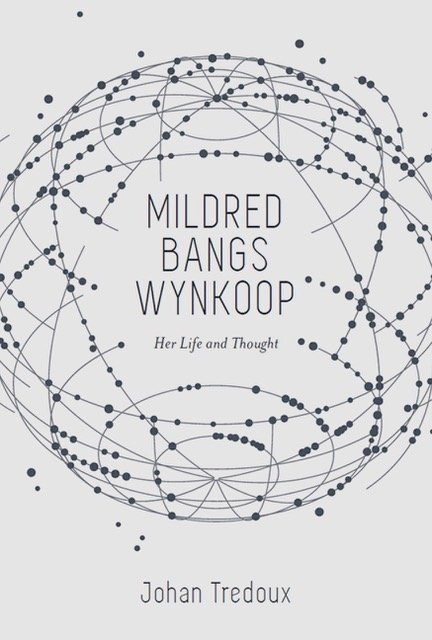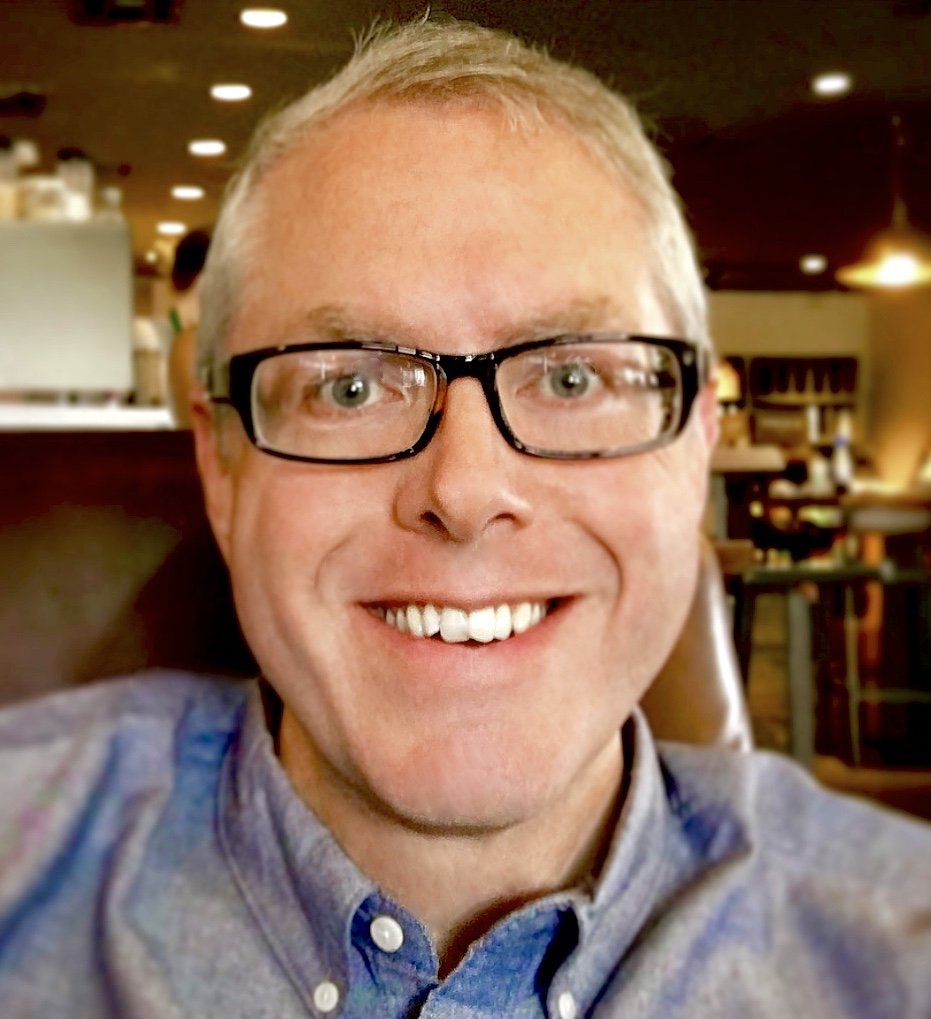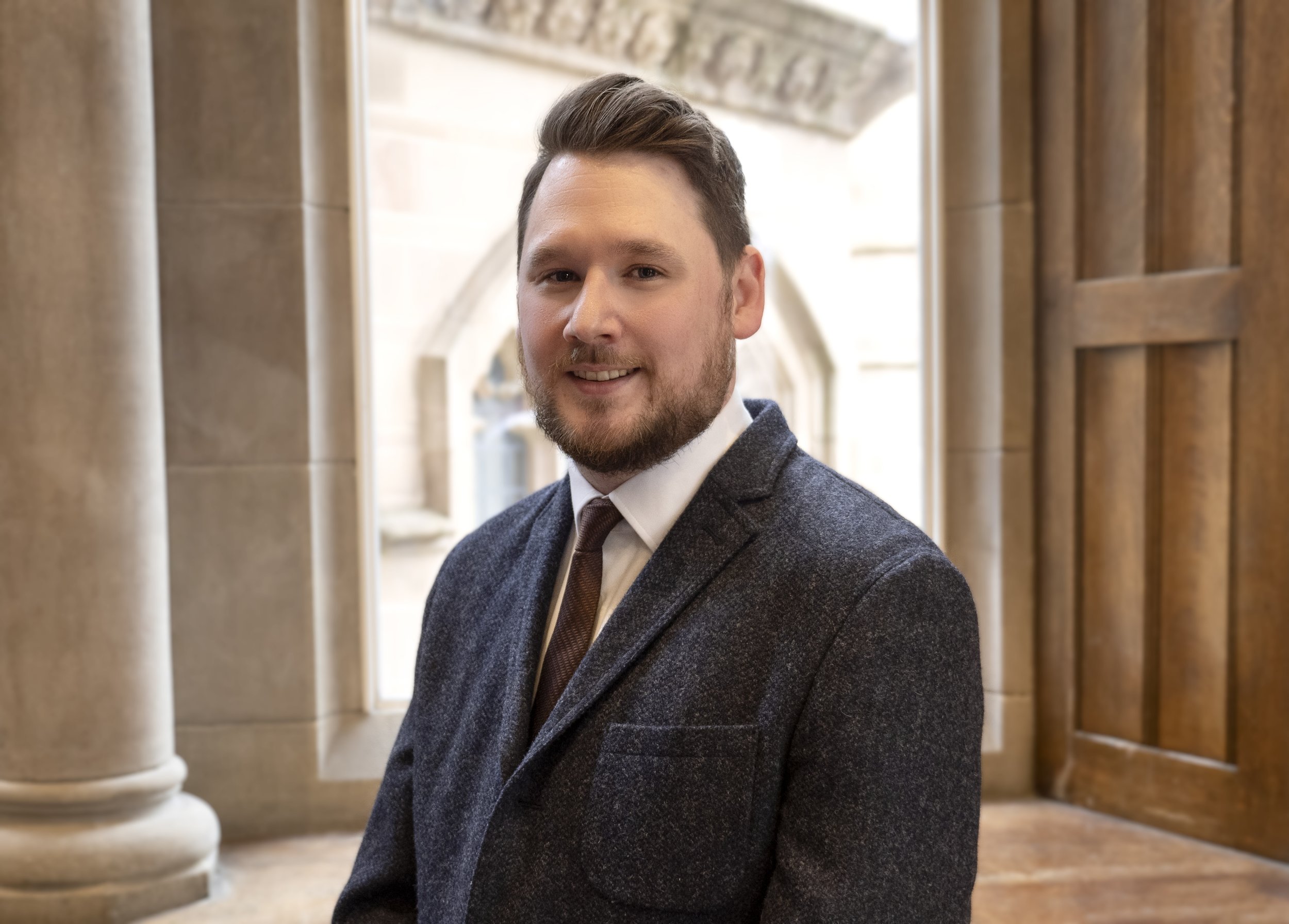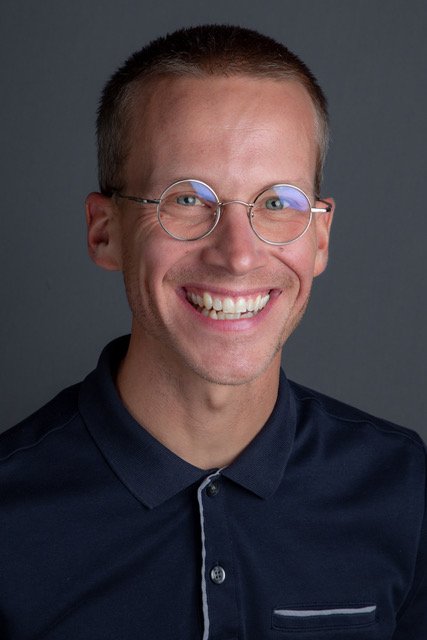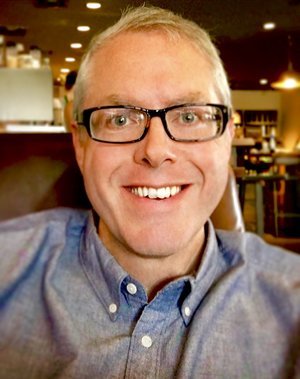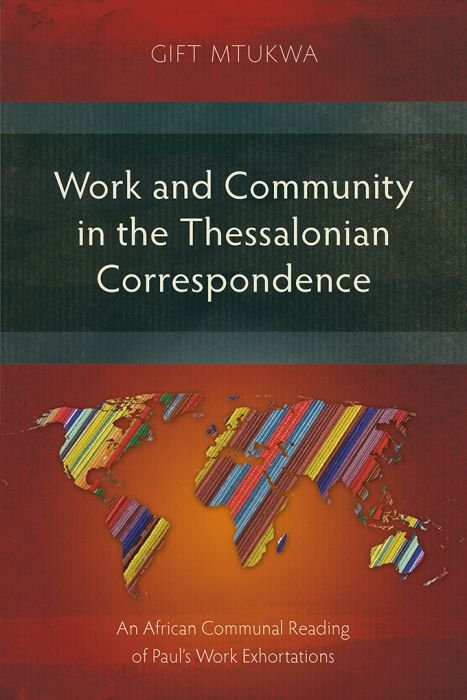Tentative Title: Power and Rhetoric in the Ecclesiastical Correspondence of Constantine the Great (under contract with Routledge)
PhD Thesis: Developing Imperial Doctrines of Power in the Rhetoric of Constantine the Great on Ecclesiastical Conflicts (Uni. of Manchester, 2018)
What's the primary argument of your book?
Essentially, I am arguing for the presence of three 'doctrines of power' that guided Constantine's use of imperial power in relation to internal church conflicts. These are not 'doctrines' in the theological sense at all, but a little more like 'policies': think of the American tendency to use phrases like 'The Monroe Doctrine' or 'The Bush Doctrine'. The situation under Constantine—very much a traditional Roman emperor, but who happened to support, promote, and personally adhere to Christianity—really didn't have much (if any) precedent. There were no pre-existing strategies, ideologies, or other means for Constantine to smoothly rule as an emperor who happened to be Christian. He had to sort of make it up as he went, and these 'doctrines' for lack of more precise terminology were basically assumptions about the prerogatives and duties of imperial power that helped direct his actions in attempting to resolve divisions among Christians. The three doctrines are: the doctrine of divine favour and agency, the doctrine of ecclesiastical unity, and the doctrine of resistance and compromise. These are arranged according to three of the most prominent themes prevailing in what we have of correspondence produced in Constantine's name from the fourth century A.D. In the book, I'm dealing primarily with questions concerning both how and why Constantine intervened with imperial in the internal affairs of the churches: my interest here goes clear back to some of the roots of the so-called 'church and state' relationship, but not in ways that might be expected at all.
What led you to study early church history and Constantine?
I grew up fascinated by the ancient Romans, largely because of old movies like Ben-Hur (1959), Quo Vadis (1951) or Cleopatra (1963). I've been interested in church history, especially prior to the Reformation, since taking a class as an undergrad at Southern Nazarene University. Church history caught my interest at a time when I didn't care much about school or studying. A visit to Rome in my early 20's was also highly influential in maintaining that interest. I also used to spend whole days off at Barnes & Noble reading the history of Christianity and Europe purely for fun. Despite two earlier degrees in theology, I really came to find that my interests, my questions, and even my whole way of thinking, were far more historical than theological. I also perceived that the narrative I was receiving as related to Constantine and his significance were only a very negative and very small part of the whole story, and I wanted to understand the emperor and his involvement with Christianity on a more objective and less anachronistic basis.
Does your book reframe discussions of Constantine that seek to identify him as the architect of 'christendom'?
The book does re-frame some of the main discussions about Constantine, but really doesn't identify him as 'the architect of Christendom'. In fact, I don't really accept the idea that Constantine established a Christian empire or even tried to do so after becoming sole emperor in 324. This isn't the book's main argument, but it emerges as one of the implications of what I do argue. If anything, Constantine inadvertently set some of the earliest conditions for the later establishment of Christianity as the empire's official religion under one of Constantine's successors (Theodosius I) later in the fourth century. I believe that Constantine acted out of lengthy and more or less established imperial tradition and precedent, rather than with an eye to the future in terms of establishing Christianity as a powerful cultural or political force. I don't believe 'church and state' combined under his rule: quite the opposite, actually, as I see religion and politics (which were never seen as separate in any part of the ancient world at any time) as beginning a very long process of eventually becoming distinct 'spheres'. So, I don't really accept modern evangelical narratives related to concepts like 'Constantinianism' or 'the Constantinian shift'. I think the historical reality is a great deal messier, and so theological reflection needs to take that reality a lot more seriously. One very basic theological question in the back of my mind, although my work is historical rather than theological, has to do with the universality of the gospel: If God's salvation in Jesus Christ is truly for all, not just a select few, then this offer extends to the rich and powerful as surely as it does the poor and powerless. In our society, that may be the real scandal of the gospel, or at least a fair number of people I've talked to about it seem to find the idea a bit offensive at first.
What does it mean to you to be an early church historian in the Wesleyan tradition?
I am deeply shaped by and grateful for my Wesleyan heritage, but I don't consider myself an 'early church historian in the Wesleyan tradition' at all. Christianity is so much bigger, deeper, and wider than can be contained even in a 'big tent mentality' like the Wesleyan viewpoint. I've seen this up close in real life more times than I can count, aside from seeing it also by studying other times and places in books. My work was partly stimulated by and was originally undertaken within a Wesleyan context, but does not primarily serve or affirm any theological views. I am firmly a historian, and not a theologian. My eyes are on a far bigger picture, not just the interests and emphases of Wesleyan theology or the Church of the Nazarene.
How do you see your scholarly work as part of your ministry?
Having tried to set myself apart from the Wesleyan tradition and the Nazarene church as a historian with the previous question, I certainly do consider myself a friend of this ecclesiastical context—which has raised, shaped, educated, and given me opportunities to serve and grow. I am the type of friend who is gentle, caring, and loyal, but I am also not afraid to tell you what I think you need to hear (as uncomfortable or difficult to accept as it may be). One of my primary motivations in life, as well as scholarly work or ministry, comes out of striving for excellence which I define in terms of what Jesus says in Luke 10:25-28. Part of this shows in my belief in giving my best efforts in all things at all times to God as an act of worship, and it has particular reflection in 'loving God with all my mind'. I am every bit as influenced by the liberal arts as the Wesleyan tradition: I encourage students to explore widely, think critically and independently, and to grow by challenging themselves in order to discover and increase their own capabilities. There is no contradiction or even paradox between this and having a small part in forming those who will be faithful future ministers and leaders in the Nazarene church.
What are some of the differences between writing a doctoral thesis and writing a scholarly monograph?
I was shocked to discover that a doctoral thesis is actually considered a 'rough draft' of a scholarly monograph based on that research. It was hard at first to consider that more than four years of intensive work and sacrifice were just the rough draft. Anyone with whom I discussed my writing process will know how I wrote 20-30 partial rough drafts of each chapter before even letting my advisors read and comment. However, due to the excellence in advice and critique I received from my advisors as well as my commitment to doing the best work of which I was capable at any given time, my abilities grew considerably every time I submitted a new piece of written work. By the time I was ready to sit down and begin shaping a book out of my thesis, it was much easier to consider it a 'rough draft'. I've since revised that thesis four times in preparation for publication, and I am currently in the middle of doing so for a fifth (and hopefully last) time.
A thesis is written for an audience of four or five: your advisors and your examiners. It's extremely narrow and specialised in focus, so you can (and should) assume a fair bit of general knowledge on the part of your readers. You also have a very limited word count of 80,000 words, and so you have to maintain a laser-like focus on setting up your argument and articulating your contribution. However, a book needs to appeal to a broader readership. You're not writing in order to sell as many books as JK Rowling or Stephen King, but it does need to be accessible and appealing to non-specialist scholars and grad students at the MA and PhD levels. Monographs are usually about 100,000-120,000 words, so you have more room to provide helpful context for your ideas so that more people can engage with those ideas more readily.
I strongly recommend two books that should be purchased before or during your final year of the Ph.D. I waited until after my defense, and wish I'd known of these books earlier! The two books are:
Germano, William. From Dissertation to Book. Second Edition. Chicago: University of Chicago Press, 2013.
Germano, William. Getting It Published: A Guide for Scholars and Anyone Else Serious About Writing Serious Books. Third Edition. Chicago: University of Chicago Press, 2016.
Read these before writing a proposal or even contacting a publisher, and keep referring to them while re-writing the manuscript.
Did you find new evidence or learn new information while rewriting?
I did not uncover new evidence or learn much new information, despite my re-writing involving a considerable amount of additional research. However, I have found myself refining my arguments and re-evaluating my points of view at various times. Nothing essential has really changed worth speaking of, but I have at different points phrased some things differently.
Any confidence in my work that I've ever had comes partly from being my own worst critic: taking my own ideas and beating them up in order to find out how solid they are in the first place, then going back to work on making them better. My book will never be truly finished in the sense that it is not my final word on Constantine: I anticipate being part of a critical scholarly dialogue that will help improve my own understanding and sharpen my thinking. Any subsequent work of journal article or book-length will be a further improvement. This first book is just an initial step into that discussion which is already taking place.
What made NTC and Manchester ideal places to undertake your doctoral studies?
My wife and I were Nazarene missionaries based in Germany, and it made perfect logistical and financial sense to remain on that side of the Atlantic to do a Ph.D. This allowed my wife to continue her important work as communications coordinator for the Eurasia Region, while the costs of NTC related to enrolling directly in the University or attending anywhere else were considerably lower. Also, the British system of education at this level made far more sense to my needs and interests than the American system. I had grown impatient with coursework, and preferred learning anything I needed to know in my own way and at my own pace. I also was eager to dive straight into research, rather than spending years taking courses, jumping through hoops with exam after exam, etc. The British system allowed for this, and was a perfect fit in every way for me.
My team of advisors—one from NTC and one from the University—proved to be an ideal combination. I cannot speak positively enough of my experience with Geordan Hammond (NTC) and Andrew T. Fear (University, Classics and Ancient History department). Much of my success at the PhD level is due to their timely advice, critical feedback, their willingness to let my work be my work even if they disagreed with my conclusions, and their expertise in their fields. Both knew when I needed my hand held, and both knew when to keep their hands off. Geordan was helpful in the broadest sense on a daily basis, helping me navigate the University bureaucracies and procedures as well as guiding me deeper into the field of history, scholarship, and academia in general. His eye for the smallest details in my chapters eventually became my own, which contributes to making my work the best that it can be. Andy Fear, an expert in the 4th-century Spanish episcopacy, knew my field extremely well and really helped shape my actual content. He pushed me to improve my skills with Greek and Latin. He never failed to challenge my arguments and views, which made them sharper and better, even if we often agreed to disagree. Geordan and Andy pushed me hard, but they both supported me 100%. I couldn't have asked for better.
Finally, life intervenes when it is least convenient, and I had a lot of firm support when that happened for me. I came down with a very bad illness that kept me in bed and unable even to lift (much less thoughtfully read) any books for about six weeks. I missed six critical weeks of work on my PhD due to that illness. However, Geordan, Kent Brower, and Peter Rae were entirely in my corner and worked tirelessly to ensure that the University would grant me an extension. I also desired to remain as active as possible in ministry while doing the PhD, and was given the opportunity to engage with the NTC community as Resident Assistant. This was a challenging job, but fulfilling and I enjoyed having an important role to play in the lives of the undergrad students. Some valuable friendships were formed with faculty and students at various levels, and I absolutely loved being part of the NTC community.
What are some other projects in progress or ones you're looking forward to post-publication?I'm not eager to write another book yet, that's for sure! My plan after publication of this book is to explore more of the emperor known as Julian 'The Apostate'. Having spent a lot of time delving deeply into the life and reign of the so-called 'first Christian emperor', I've long been interested in learning more about the 'last pagan emperor'. Constantine ruled longer than any other previous emperor except for Augustus himself, and certainly made a major historical impact. Julian, on the other hand, ruled for barely a year-and-a-half before being killed in battle, but had a surprising impact on the thinking and imagination of Christians in a different way. His anti-Christian arguments and agenda seem to have presented a legitimate threat to Christians, and I'm interested in looking further into these. Instead of immediately setting to work on another book, however, I plan to do this exploration in the form of journal articles—maybe one day making another book out of it, but not going into this new research with that intent.
What advice do you have for recent doctoral graduates who want to publish their theses?
Publish for the same reasons you did the PhD in the first place: because you can't help yourself out of curiosity and passion for the field, and because you're willing to expose your ideas to a broader audience. Don't publish just because 'everyone is doing it', or because you think you need the respect, or even because you think it will help get you a job.
Aim to improve your existing work: don't just settle for the work you've already done. Keep up with scholarly developments in your field, and try to integrate it as much as possible into your book manuscript as relevant.
Read those books I recommended above as soon as possible if you're serious about publishing. And feel free to reach out to me any time (contact Geordan Hammond at NTC) for any other helpful advice along the way.




